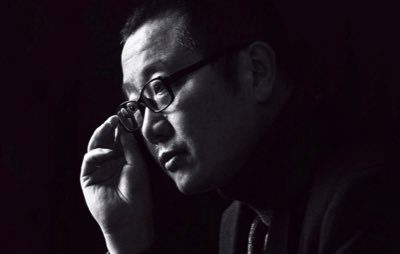Liu Cixin may be most important science fiction writer alive today. His trilogy Remembrance of Earth’s Past has been translated into twenty languages and sold eight million copies worldwide. It’s first volume, The Three Body Problem, will be adapted for Netflix by the showrunners behind Game of Thrones.
Cixin’s fans include Barack Obama, Mark Zuckerberg, former Chinese Vice President Li Yuanchao, and the London Review of Books. It described his trilogy as “one of the most ambitious works of science fiction ever written.”
On July 11th, Chinese state-media outlet The Global Times reported that the author had joined the AI company SenseTime as director of the “Science Fiction Planet Research Center.”
Cixin told the World Artificial Intelligence Conference in Shanghai that he hoped to collaborate with SenseTime on new immersive worlds. Users would soon be able to “experience the vastness of the universe, the insignificance of human beings, and the infinite possibilities in the future”, he said.
SenseTime does not just make games. It is also one of several firms involved in developing surveillance technology to help the Chinese government track and control the Uyghur population around Xinjiang, and elsewhere in China
According to the New York Times, SenseTime, along with four other companies, is the first to use to explicitly use this technology for racial profiling. As many as two million Uyghurs are currently detained in forced labour camps and re-education centres in Xinjiang.
Cixin lives in China and is a supporter of the Communist Party. He was asked about the Uyghurs in a 2019 New Yorker profile. Cixin’s defence of Chinese government policy followed the party line:
André Gide once said that every good writer ought to navigate against the current. Cixin is a great writer, but he is clearly willing — or feels obligated — to swim with the tide. In the context of his comments to The New Yorker, his work with SenseTime comes as little surprise.
Cixin’s importance operates at two levels. There is the sheer imaginative brilliance of the Remembrance of Earth’s Past Trilogy, which takes place over the course of 18 million years, and details a brutal, Hobbesian struggle between humanity and a technologically advanced alien race.
Then there is Cixin as a representative of China at this moment in its history. Just as H.G. Wells’ science fiction probed deep anxieties in Britain at at time of unprecedented scientific change, Cixin writes speculative fiction as China expands and advances as a 21st century superpower.
Wells, like many progressives in Britain at the turn of the last century, looked forward to the inevitable arrival of a rational World State ruled by an elite caste of scientists and engineers. Cixin has no such vision. In his novels, kindness gets characters killed, idealism is a luxury, and realpolitik is the only sane approach to geopolitical conflict. Unlike Wells, who also wrote fine social comedies, Cixin’s views human beings as they interact in systems and institutions. It is a cold view.
It would be easy to draw a line from the bleak outlook of Cixin’s fiction to his decision to work for a company that is involved in what is being described as a genocide. “In a time of war”, says one of his characters, “we can’t afford to be too scrupulous.” Cixin doesn’t appear to have many scruples about Xinjiang.
Then again, the pressures Cixin may be under as the most celebrated writer in a totalitarian society are not known. They can be guessed at though. Consider what he wrote in the afterword to the English edition of The Three Body Problem:
H.G. Wells was not bound by ‘invisible shackles’ like Liu Cixin.










Join the discussion
Join like minded readers that support our journalism by becoming a paid subscriber
To join the discussion in the comments, become a paid subscriber.
Join like minded readers that support our journalism, read unlimited articles and enjoy other subscriber-only benefits.
Subscribe